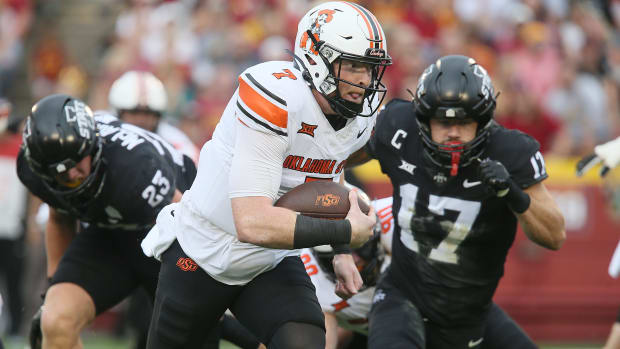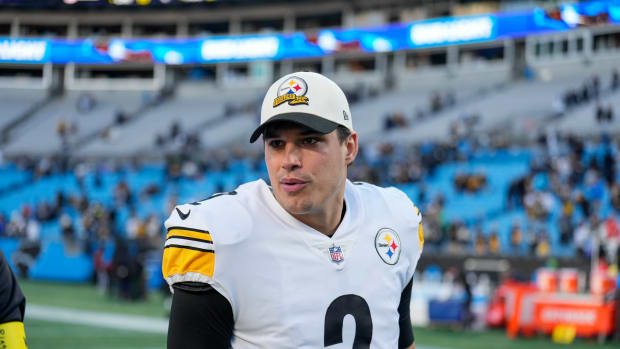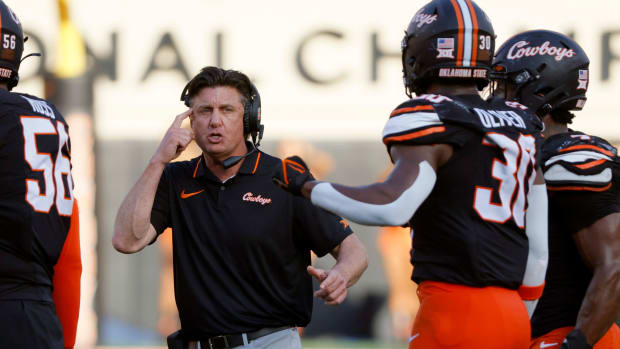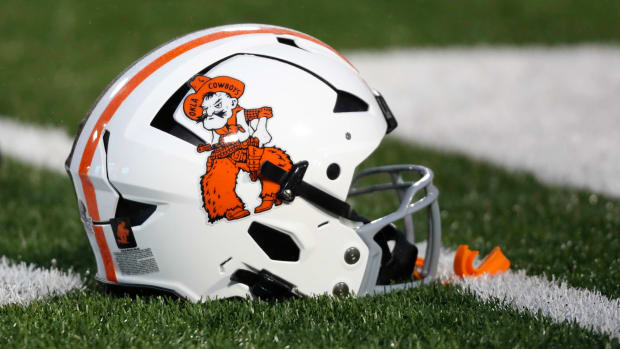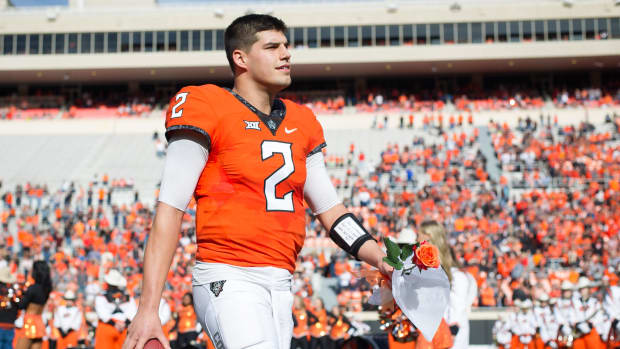NCAA Moves Toward Student-Athletes Benefiting From Name, Image and Likeness
STILLWATER -- One of the more hotly contested and argued about topics surrounding college sports is one step closer to being put in place.
In a meeting on Wednesday morning, the NCAA Board of Governors supported a rule change that would allow student athletes to "receive compensation for third-party endorsements both related to and separate from athletics."
The NCAA is now moving into the rule-making process for each of the three divisions, and each division is expected to implement name, image and likeness rules the start of the 2021-22 academic calendar in January.
“The NCAA’s work to modernize name, image and likeness continues, and we plan to make these important changes on the original timeline, no later than January 2021,” said Gene Smith, Ohio State senior vice president and athletics director and working group co-chair. “The board’s decision today provides further guidance to each division as they create and adopt appropriate rules changes.”
There are a couple of important caveats that are included, such as the student-athletes will be allowed to "identify themselves by sport and school," but they won't be allowed to use conference, school logos or trademarks. The NCAA also stated that "at no point should a university or college pay student-athletes for name, image and likeness activities."
This means student-athletes can be endorsed by restaurants, car dealerships, gyms and retail operations and the like, but they can't, however, wear school-branded clothing in their personal endorsement deals.
They can also sell autographs and memorabilia and be paid for personal appearances. However, they must disclose the financial terms of their contracts with their respective athletic departments, as well as the relationship they have with the parties involved. Their eligibility could be affected should they fail to share the details of the agreements or relationships.
The student-athlete would also be able to hire an agent to help find marketing deals, but said agent couldn't pursue any professional sports opportunities while the student-athlete was still in school.
For many, this unfortunately rules out the possibility of a new NCAA Football game from EA Sports, or any other video game company.
The NCAA is also beginning to work on a set of rules eliminating the payments and name, image and likeness use for potential student-athletes.
"These would include no name, image and likeness activities that would be considered pay for play; no school or conference involvement; no use of name, image and likeness for recruiting by schools or boosters; and the regulation of agents and advisors."
However, it might allow for current student-athletes to accept money from boosters:
"The NCAA could allow athletes to accept endorsement money from boosters, as long as it's not used by boosters to try to recruit players for their schools. An idea proposed at previous meetings included the NCAA creating a regulatory board to "determine the fair value" of deals and make sure athletes stay within the appropriate bounds. If athletes report their endorsement earnings, the board would reportedly flag excessive deals as a violation. NCAA president Mark Emmert said in January that he didn't know if the league or a third party would regulate the market.
There are several athletes on the Oklahoma State campus, and that will be on campus, that will benefit from the new rule change. While they probably won't be in the middle of the season, returners Chuba Hubbard and Tylan Wallace will be the two football players who could benefit the most.
Along with Hubbard and Wallace, it's going to be interesting to see how the draft eligible players and graduating seniors benefit with such a short time before the end of their college careers. Guys such as Amen Ogbongbemiga, Dillon Stoner, Malcolm Rodriguez and Rodarius Williams among others.
Spencer Sanders, Kolby Harvell-Peel and Tre Sterling among others are also players that will benefit, though all three will technically fall under the draft eligible category.
I'd also expect a restaurant, or two, to have some sort of promotion with the offensive and defensive lines.
While he's not on campus yet, someone that will be towards the top of the benefiting list is incoming freshman Cade Cunningham. Cunningham is the No. 1 overall prospect in the 2020 class, the projected No. 1 overall draft pick for the 2021 NBA Draft and will be in the middle of his freshman season when these rules take place.
Along with Cunningham, a majority of the basketball will most likely benefit, but at different degrees, such as Isaac Likekele, Yor Anei, Avery Anderson, Kalib Boone among others.
Along with basketball, the spring sport athletes will have a great opportunity to benefit from the rule changes as their seasons will be fixing to get underway: baseball, softball, golf, tennis and track and field.
